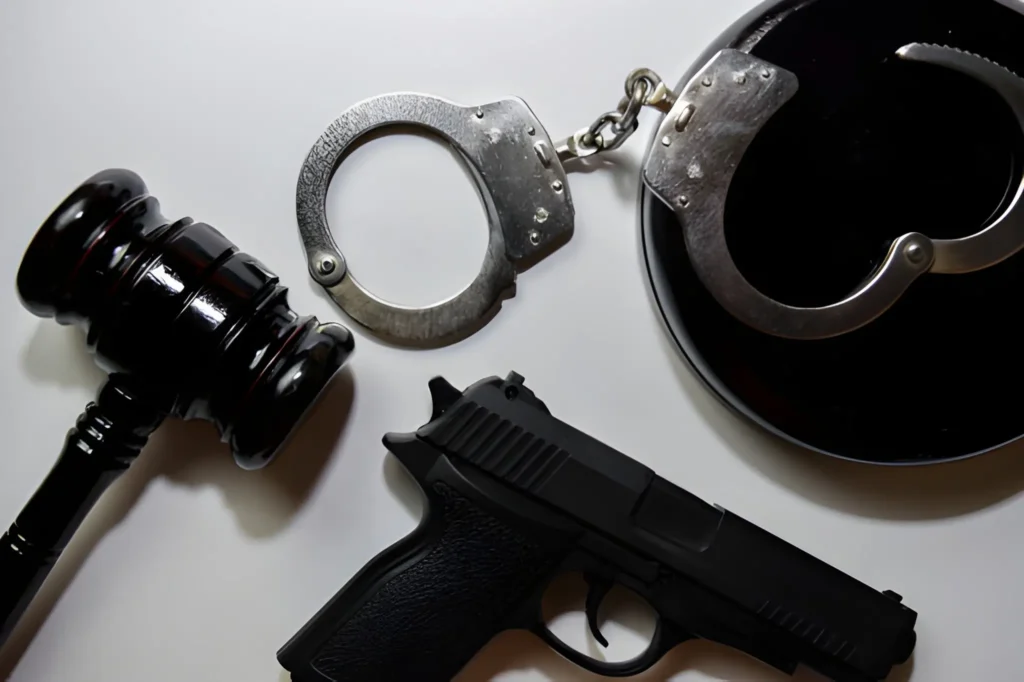Criminal charges can be overwhelming, but understanding the defenses available is critical for anyone facing prosecution. Every criminal case is unique, and the appropriate defense depends on the circumstances, the type of offense, and the evidence involved.
Defense strategies are not just about denying wrongdoing—they aim to protect your rights, reduce charges, or even secure a complete dismissal.
While the details vary by case, several common defenses are frequently used in criminal law. Knowing about them can help defendants make informed decisions and work effectively with their attorneys.
Innocence: The Foundational Defense
The most straightforward defense is claiming that the defendant did not commit the crime. Proving innocence relies on challenging the prosecution’s evidence and presenting alibis, eyewitness testimony, or other documentation that demonstrates the defendant could not have committed the alleged act.
This defense often requires careful investigation. As Justie Nicol, Colorado Lawyer Team, Criminal Defense & Family Lawyers, says, “Attorneys gather physical evidence, review surveillance footage, interview witnesses, and examine inconsistencies in law enforcement reports. Even when the evidence appears strong, a thorough analysis can reveal mistakes or gaps that cast reasonable doubt on the prosecution’s case.”
The presumption of innocence is fundamental in criminal law, and an early, well-prepared defense can leverage this principle effectively.
Alibi Defense
An alibi defense is used when the defendant was somewhere else when the crime occurred. Establishing a credible alibi can completely exonerate the defendant if supported by reliable evidence, such as receipts, GPS records, security camera footage, or testimony from witnesses who saw the defendant elsewhere.
“Alibi defenses require precise documentation and corroboration. A poorly presented alibi can be dismissed, so working with an attorney to compile strong, verifiable evidence is essential. Timing is also critical—presenting an alibi as soon as possible increases its credibility and reduces the risk of prosecution counterclaims”, says Anthony DeLuca, Prostitution Defense Lawyer in Pittsburgh at DeLuca, Ricciuti & Konieczka.
Self-Defense
Self-defense is a common strategy in cases involving assault or violent confrontations. The defendant argues that their actions were necessary to protect themselves from imminent harm. The key elements include proving that the threat was real, immediate, and that the defendant used only reasonable force in response.
As Matthew Lopez, Phoenix, az dui lawyer at Matthew Lopez Law, says, “Success in a self-defense claim often depends on the credibility of witnesses, the presence of injuries, and the circumstances surrounding the incident. Attorneys may also use expert testimony, such as forensic analysis or psychological assessments, to show that the defendant had no choice but to act in defense of themselves or others.”
Duress and Coercion
Sometimes a defendant commits a crime because they were forced or threatened by someone else. This defense, known as duress or coercion, applies when a person reasonably believes that failing to comply would result in serious harm or death.
Duress defenses require demonstrating that the threat was immediate and unavoidable and that a reasonable person in the same situation would have acted similarly. Courts carefully scrutinize these claims, and early legal representation is critical to gather evidence and witness testimony supporting the defendant’s situation.
Insanity or Mental Health Defenses
In some cases, defendants may claim they were legally insane or suffering from a severe mental disorder at the time of the crime, preventing them from understanding the nature of their actions or distinguishing right from wrong.
This defense often involves psychiatric evaluations, expert testimony, and detailed documentation of the defendant’s mental health history. It is typically more complex than other defenses and rarely results in a complete dismissal. Instead, it may lead to alternative sentencing, such as treatment in a psychiatric facility rather than incarceration.
Mistake of Fact or Law
A mistake of fact occurs when a defendant acted under an incorrect belief that negates criminal intent. For example, taking someone else’s property believing it was yours can sometimes reduce or eliminate liability. A mistake of law, however, is more limited—claiming ignorance of the law is rarely a successful defense, as individuals are generally expected to know legal statutes.
These defenses require careful legal argumentation and supporting evidence. Mistake of fact defenses are particularly relevant in property crimes, certain fraud cases, or situations where intent is a critical element of the offense.
Entrapment
Entrapment is a defense used when law enforcement induces a person to commit a crime they otherwise would not have committed. To succeed, the defendant must prove they were not predisposed to commit the offense and that government agents or undercover officers initiated or encouraged the illegal act.
Entrapment cases often involve detailed analysis of communications, undercover operations, and the defendant’s prior behavior. Proper documentation and early attorney involvement are crucial to build a strong entrapment defense.
The Importance of Early Legal Guidance
Selecting and implementing the right defense requires prompt legal intervention. The earlier an attorney becomes involved, the more time they have to gather evidence, locate witnesses, and analyze procedural errors that could strengthen the defense. A delayed defense can limit options, weaken credibility, and reduce the effectiveness of otherwise viable strategies.
Even in cases where guilt appears likely, skilled attorneys can negotiate plea agreements, recommend alternative sentencing, or advocate for reduced charges. Understanding all available defenses is essential for anyone facing criminal charges and emphasizes the importance of professional guidance from the outset.
Challenging Evidence and Procedural Errors
Another critical defense strategy in criminal cases is challenging the evidence or the way it was obtained. Even when a defendant appears to have been caught in a compromising situation, evidence can sometimes be flawed, mishandled, or obtained in violation of legal procedures.
Defense attorneys examine whether law enforcement followed proper protocols for arrests, searches, and interrogations. If mistakes are found, key evidence may be excluded, which can dramatically weaken the prosecution’s case.
This includes analyzing police reports for inconsistencies, verifying chain-of-custody for physical evidence, and questioning the reliability of witness testimony. Attorneys also look for violations of constitutional rights, such as illegal searches under the Fourth Amendment or coerced confessions that breach the Fifth Amendment.
By identifying procedural errors early, a defense attorney can negotiate dismissals, reduce charges, or improve leverage in plea negotiations. This aspect of criminal defense underscores why early legal involvement is vital: the sooner errors are identified and addressed, the stronger the defense becomes.
The Role of Expert Witnesses in Building a Defense
In many criminal cases, expert witnesses play a pivotal role in supporting the defense. These professionals provide specialized knowledge that can clarify complex evidence, challenge prosecution claims, or offer alternative interpretations of facts. For instance, forensic experts can examine DNA, fingerprints, or digital data to confirm or refute the accuracy of evidence.
Similarly, medical experts can evaluate injuries to determine whether they are consistent with the alleged crime or support a self-defense claim.
Expert testimony can also extend to psychological analysis, accident reconstruction, ballistics, or financial audits in fraud cases. By presenting credible expert opinions, a defense attorney strengthens their argument, introduces reasonable doubt, and enhances the court’s understanding of technical or specialized evidence. Early engagement allows experts sufficient time to conduct thorough evaluations, prepare reports, and testify effectively if the case goes to trial.
Final Thoughts
Criminal cases are complex, and every defense strategy must be tailored to the unique circumstances of the offense. Common defenses—ranging from innocence and alibis to self-defense, duress, insanity, mistake, and entrapment—serve as tools to protect defendants’ rights and achieve fair outcomes.
Early involvement of a qualified defense attorney is critical, as it allows for thorough investigation, evidence preservation, and strategic planning. In criminal law, timing, preparation, and professional guidance often make the difference between conviction and exoneration.



